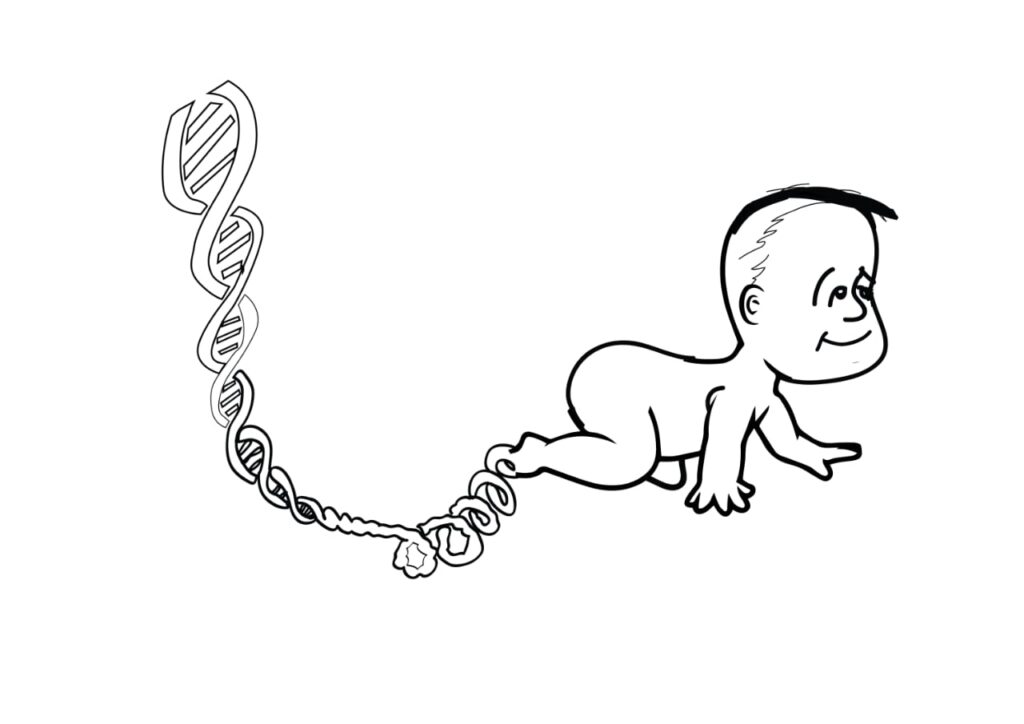Decoding human behaviour – Part 2 – Some fundamentals of heredity
September 4, 2020 7:23 pmAmong the frequently asked questions to psychiatrists, heredity and genetics matter most. Doctor, is it hereditary? What are the risks for the next generation? How do the hereditary factors affect the treatment outcome? Will it become chronic, unresponsive to treatment? Will he/she be able to marry? What causes mental illness? Questions galore. The one sentence answer would be, ‘since our physical and behavioural characteristics are products of heredity and environment, these factors do play a major role in our wellness and illness.
We need to familiarise with some essentials of genetics in order to understand the neuro biology of mental illness and how decoding of human behaviour is possible. Looking at scientific developments, 19th century biology was known as the era of Evolution and Genetics thanks to Darwin and Mendel, while 20th century belonged to discovery of DNA by Watson and Crick. The magical three letter word DNA was thought to be capable of answering all that mattered to mankind till it was found to be incapable of doing so. Then the much celebrated Human Genome Project (HGP), world’s largest collaborative biological project involving twenty universities was launched with the goal of mapping all the human genes.
It is worth going through some of the ecstatic statements by two world leaders on 26 June 2000 when the first draft of HGP was jointly announced by the then US president Bill Clinton and British Prime Minister Tony Blair.
Today we are learning the language in which God created life.
US President Bill Clinton
We now have the possibility of achieving all we ever hoped for from medicine.
UK Science Minister Lord Sainsbury
Unfortunately, these statements have proved at best premature. There was a lot of hope that we would have a complete understanding of human destiny and diseases affecting us, with the discovery of DNA and much more was expected after the completion of HGP. Notable among the conclusions of HGP in the context of this article are:
- Humans have about 25000 genes in each cells.
- It is difficult to establish a direct link between any specific gene(s) and specific biological process or disease.
- In most human diseases it is often the result of multiple genes as well as the way how genes are expressed. (how genes did their work)
Our genes come from our parents as well as ancestral generations, like a family heirloom. What one needs to know is that we are a repository of all types of genes for good physical and mental health, or even for triggering diseases.
Why genes are important?
Genes are to the body the way architects are to a building. Architect conceives a base model of the building. Then depending on inputs from the customer and availability of resources, special features and designs are added to make the final product unique and appealing.
Genes do the same thing. Genes make the base model of human body and behaviour. Base model does not make a complete man. In order to make a complete man with his/her uniqueness and idiosyncrasies certain crucially important additional works have to be carried out. This cannot be done singlehandedly by the genes. Something beyond the domain of genes become essential. So it takes the help of what is now known as Epigenetic mechanisms to incorporate further changes and designs, in tune with inputs from environment to make a complete man – the human Phenotype (physical structure).
Growth and development of all living organisms, require good quality building blocks. Proteins synthesised by the DNA (gene) form the most important building blocks for carrying out all body functions. Buildings made of low quality construction materials will be a headache to the owner from the beginning. Similarly if the proteins, body’s building blocks, are not made to perfection, (which is done exclusively by the genes) it will undoubtedly affect our existence, health and life span. This is exactly why genes are important in health as well as in diseases.
DNA provides the basic infrastructure required for sustaining life, like the basic hardware and software a computer has when we purchase a new one.

Thereafter new software is installed according to the need of the owner. Similarly ‘human software’ for modifying and sustaining life is added according to the inputs from exposure and experience. This acts as controller of the genes deciding which genes are to remain active and which should remain silent. ’Something’ beyond DNA plays a regulatory control. In nut shell this is Epigenetics.
James Watson himself commented about this in 2003. He said “The major problem I think is Chromatin. You can inherit something beyond the DNA sequences. That’s where the real excitement of genetics is now.”
